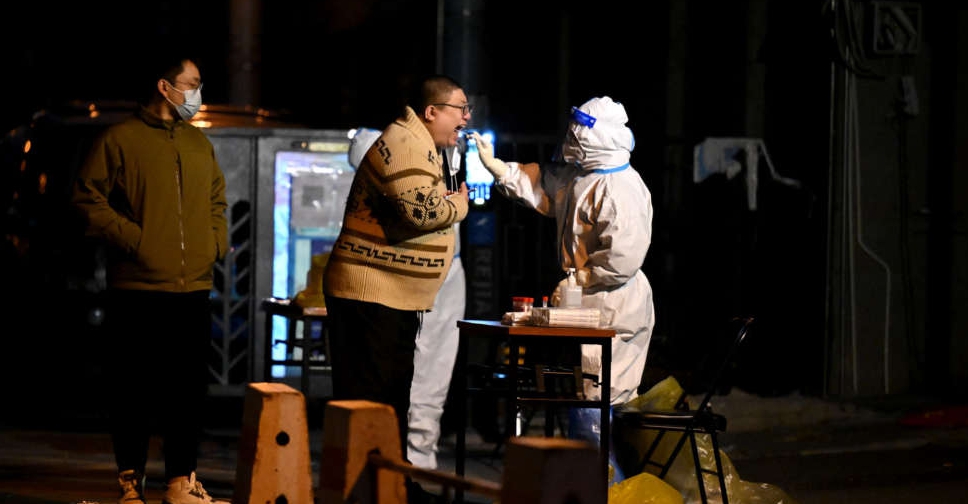
Beijing shut parks, shopping malls and museums on Tuesday while more Chinese cities resumed mass testing for COVID-19, as China fights a fresh nationwide spike in cases that has deepened concerns about its economy.
China reported 28,127 new local cases nationally for Monday, nearing its daily infection peak in April, with cases in the southern city of Guangzhou and the southwestern municipality of Chongqing account for about half of the total. In the capital Beijing, cases have hit a fresh record high, prompting calls for more residents to stay put.
There were two new deaths attributed to COVID-19, compared with three over the weekend, which were China's first since May.
The latest wave is testing recent adjustments China has made to its zero-COVID policy, which asks authorities to be more targeted in their clampdown measures and steer away from the widespread lockdowns and testing that have strangled the economy and frustrated residents.
Even after these changes, China still has some of the world's strictest COVID restrictions, and the measures in Beijing and other cities have renewed investors' worries over the economy and prompted global stocks and oil prices to slip overnight.
Nomura analysts said on Tuesday their in-house index estimated that localities accounting for about 19.9 per cent of China's total gross domestic product were under some form of lockdown or curbs, up from 15.6 per cent last Monday.
Beijing on Monday warned that it is facing its most severe test of the COVID-19 pandemic and tightened rules for entering the city, requiring arrivals from elsewhere in China to undergo three days of COVID testing before they are permitted to leave their accommodation.
Many museums have been closed and on Tuesday, venues such as the Happy Valley amusement park and the city's vast Chaoyang Park, a popular spot with runners and picknickers, said they would shut due to the outbreak. Beijing reported 1,438 new local cases, up from 962 on Sunday.
The central city of Wuhan, where the virus was first discovered in early 2020, issued a notice on Tuesday urging its residents to only travel between home and work.
Chinese Vice Premier Sun Chunlan, who has spearheaded the zero-COVID policy, visited Chongqing on Monday and urged authorities there to adhere to the measures and bring the outbreak under control, the municipality said.
Investors had hoped that China's more targeted enforcement of zero-COVID curbs could herald more significant easing, but many analysts are cautioning against being too bullish.
Inside China, many businesses, especially customer-facing ones, also fear they may not survive until next year as customers continue to hold tight to their cash.
"The real picture may not be as rosy as it seems," Nomura analysts said in a separate note, saying they only expected any reopening to accelerate after March next year, when the reshuffle of China's top leadership is completed.
"Reopening could be back and forth as policymakers may back down after observing rapid increases in cases and social disruptions. As such, local officials may be even more reluctant to be the initial movers when they try to sound out Beijing’s true intentions," Nomura wrote.



 Israeli attacks on Gaza killed 60 people in 24 hours
Israeli attacks on Gaza killed 60 people in 24 hours
 Trump fires National Security Agency director
Trump fires National Security Agency director
 Israel steps up Syria strikes, says Turkey aims for 'protectorate'
Israel steps up Syria strikes, says Turkey aims for 'protectorate'
 US sending Israel 20,000 assault rifles that Biden delayed
US sending Israel 20,000 assault rifles that Biden delayed



